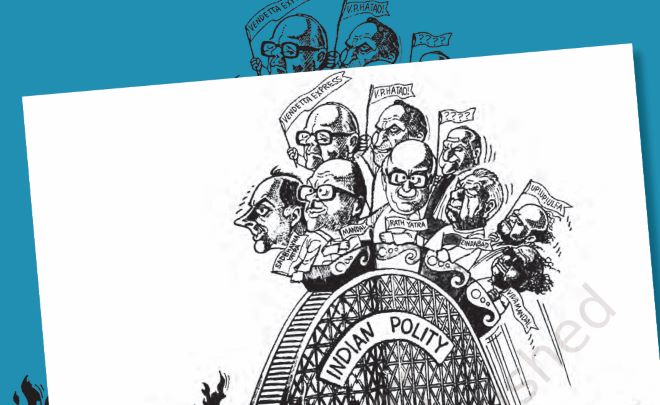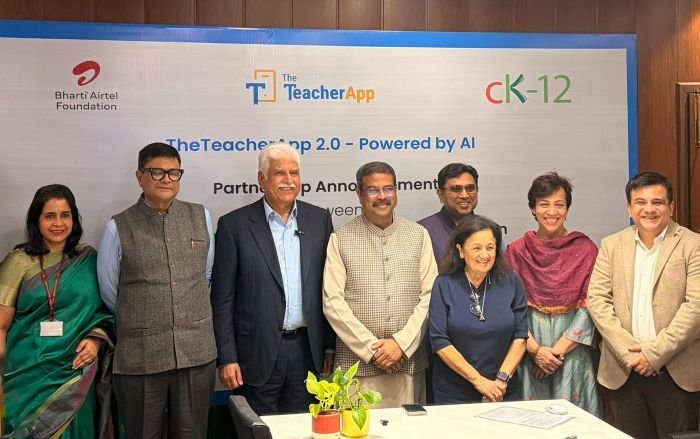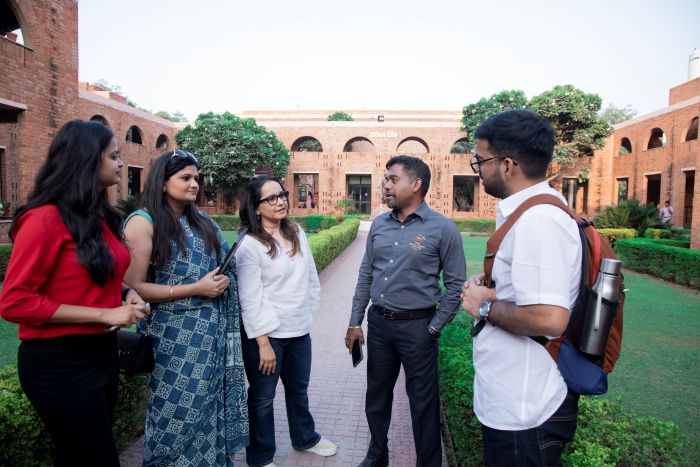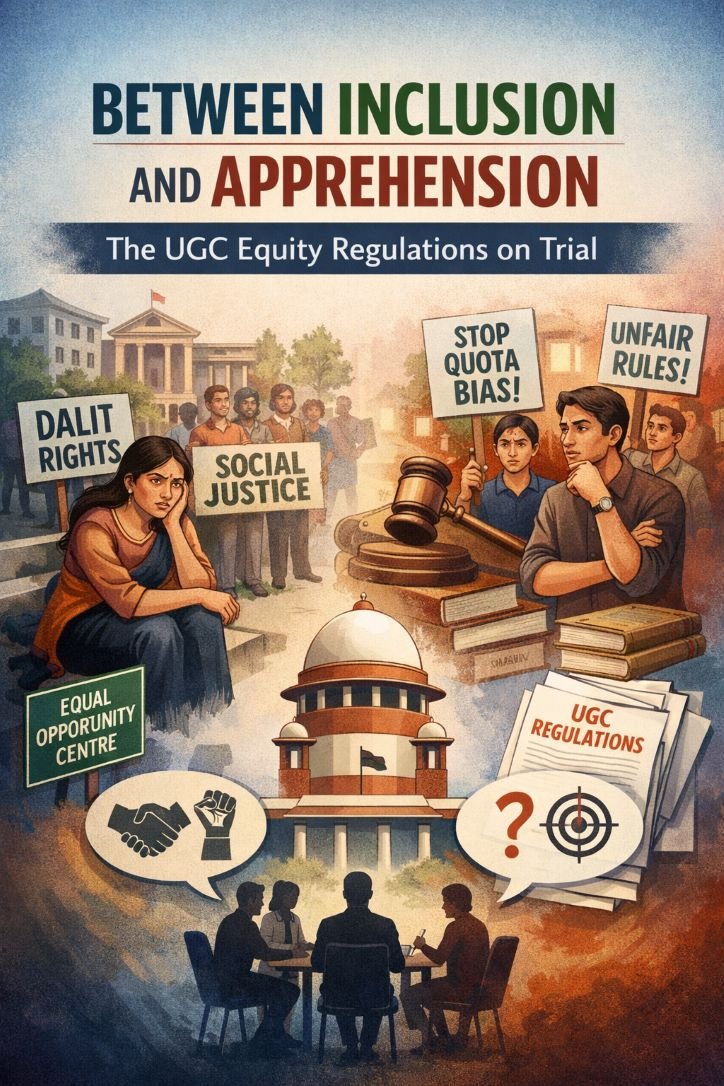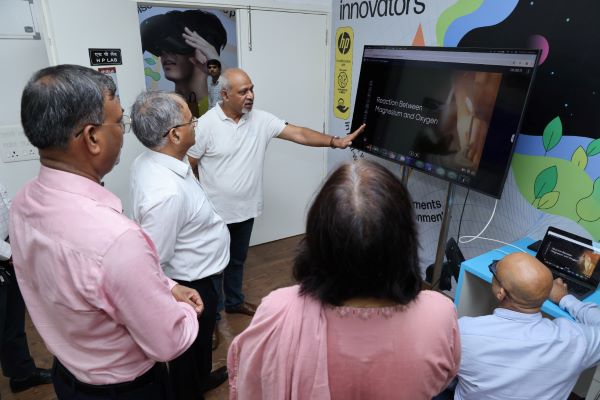
The issue of textbook revision by NCERT was raised in the ongoing monsoon session of the Parliament during a debate on the demand for grants for the education ministry in Lok Sabha. While the Education Minister defended the revision saying ‘Western influence in the Indian education system has to be removed’ or in other words can be termed as the decolonization of education, the opposition MPs on the other hand alleged that systematic revision of textbooks under the current government poses a threat to our children’s intellectual integrity.
So, let’s get into this issue, which is not new but periodically flares up with newer controversies.
The National Council of Educational Research and Training (NCERT), the national academic body for school education in India, has yet again hit a controversy on rationalization cum revision of its school textbooks, widely prescribed by schools across India including more than 28000 CBSE-affiliated schools. And, it is history textbooks again that are at the centre of this latest controversy.
The unfolding of the issue all began with the current cycle of revision of all textbooks from class 6 to class 12 by the NCERT in response to Covid19 pandemic for reducing the curriculum load and examination stress in 2021. Then, the content that was easily accessible to students without much interventions from teachers and can be learned by children through self-learning or peer-learning or which is irrelevant in the present context, was sought to be dropped in this larger revision exercise. These revised textbooks since their arrival in 2022 and thereafter stirred rants from critics and past authors on the hurriedly done rationalization and also for the choice of content being dropped in its name. In case of Darwin’s evolution theory being dropped from science textbooks of class X in 2023, more than 1800 scientists and educators protested against it.
In this series of contention on rationalized textbooks, the revised edition of the political science textbook of class 12, which appeared this April-May, evoked sharp reactions from many educators and authors after it was found that the portions of the book that been removed supposedly reflect political agenda of the ruling party. In the revised book Babri Masjid is substituted as ‘three-domed structure’ in chapter dealing with the history of Ayodhya dispute and Babri Majid- Ram janambhoomi movements, which some experts feel is against the basics of history teaching.
Then on June 16 in an interview to news agency PTI, Prof. Dinesh Prasad Saklani, the current director of NCERT since Feb 2022, a historian himself, sought to downplay the controversy and justified the changes by saying that the deletions were necessary as NCERT wants “to create positive citizens, not violent and depressed individuals.” He added, “Hatred, violence are not the subjects of teaching in school and shouldn’t be focus of textbooks.”
His comments caught attention of many people including mainstream media and ever since there has been a raging debate around the teaching/learning of history in schools and the agenda being pursued by the current Government in the name of revision through NCERT. Past authors like Prof Yogendra Yadav have sought to disassociate themselves from the new books and have asks NCERT to remove their names from books as authors. BJP sympathizers see this as a left-liberal criticism while justifying the edits.
In fact, the left versus right battle over history textbooks is not new in India. The very birth of NCERT in 1961 was ‘in the backdrop of a school system struggling to disengage from its elitist colonial past and create a common programme of school education that was universally accessible and reflected the pluralist character of India and strongly focused on the question of ‘national integration.’ Since then, seen to promote the ruling party’s political ideology, NCERT history and other textbooks are seen aligned to the goals of nationalist development and integration, and to secularism than objective history. Rightist historians critical of these textbooks of history held these were far removed from the reality of history and culture of India and the “composite culture” narrative insulated generations of Indians from making ideological choices.
This face-off took an interesting turn when BJP led-NDA formed its first Government at the centre in 1999 under the premiership of Late A B Vajpayee. Allegation of saffronization of education were leveled against NCERT then with again history books being at centre of these allegations. Then in 2004 Congress-led UPA sought to reverse changes made by the NDA and finally an attempt was made to shift textbooks preparation from ideology to pedagogy by the then director Prof Krishna Kumar to focus instead on the pedagogical needs of the school children through new tends in historical research and inclusion of contemporary history.
But it appears, the differing ideological views persist and have not been bridged and the BJP-led NDA Government under Prime Minister Narendra Modi ruling since 2014, has been making concerted efforts to infuse rightist world view into textbooks and, apparently revision of textbooks has provided that the Government a pretention.
According to Dr Saagar Tewari, associate professor of history at Jindal School of Liberal Arts & Humanities and a JNU alum, while children in this age are already exposed to tons of information from multiple sources chiefly internet and social media and don’t depend on textbooks alone, still the textbooks convey the official version and is thought of being a well- balanced and sanitized source. “But if you enmesh political agenda into history teaching then history makes no sense to the learner,” he adds.
Dr. Maya John, historian and elected member of The Academic Council of Delhi University while criticizing the changes feels history taught in schools and through text books must be plotted in inclusivity, which alone can provide young minds a sense of the rich diversity of the human past, both within the Indian subcontinent and the wider world. She claims deletion of entire chapters and portions of texts from history and political science textbooks is not based on any academic or pedagogic consideration. “Instead, it is a divisive and partisan agenda of the ruling dispensation which is reflected in the NCERT’s persistent endeavour to erase several important themes and details from textbooks. Since 2022 the NCERT initiated a contentious process of dropping topics like the history of the Mughal courts, the 2002 communal riots in Gujarat, the Emergency, the mention of Dalit writers, the Naxalite movement, the industrial revolution, and the fight for equality from social science, history, and political science textbooks of classes 6 to 12. More recently in 2024, NCERT officials have notified the removal of the section on the Babri Masjid demolition and subsequent riots from the political science textbooks, stating that the teaching of such a topic breeds violence. It is a very strange position taken by the NCERT on not including content on riots in textbooks. By that logic, children should not be taught about diseases because that would lead to pandemics!” she adds.
At the same time, those batting for the new changes, sees them necessary. In an opinion piece on the controversy Rahul Shivshankar, editor-in-chief CNN News18 TV news channel favoring changes by NCERT writes, “If the Left objects to the sanitised history of the “three-domed structure”, then it should be as worked up about the paternal state’s erstwhile omissions. Why haven’t we ever been taught about the oppressive psychological and material impact Muslim colonialism and latter-day separatism had and has on Hindus?” In the same piece he however cautions against overcorrection, “One hopes though that in the process the intellectual Right will guard against an overcorrection. Because if it fails to stay within the redlines, it will, much like the Left, end up contributing to Bharat losing the war it is fighting to accurately record its history.”
According to Dr Tewari quoted above, imparting education of history is important in schools as you create impressions of chronological architecture in young minds and a sense of basic understanding of the society around him and her. History is to society, what memory is to an individual—a repository of past. “At the same time, there are some collective past events which are problematic and are sought to be sanitized but when you start observing things like horrors of partition, there is clearly a mismatch of this principle in your practice,” he adds while responding to NCERT director’s reasons for toning down violent historic events.
Nonetheless, a country like England/Scotland who preach syntax of rules to the whole world, the mention of British colonialism and imperialism is completely omitted in their own school textbooks. So, by that comparison, NCERT is well in its rights to delete what it thinks is emotionally draining for children.
As the divergent debate over history books as explained above is as old as NCERT itself, there is a need to question the British era authored history and the era itself to see how the colonial establishment imposed its understanding of Indian history as the modern history of India and pitted religions and communities against one another. This clever packaging made Hindus ancient, Muslims medieval and Britishers as the modern in India and then narratives were weaved for success of their divide and rule policy. That European religious wars (that killed millions) in their subconscious, made contextualize the local communities that way only, must be further explored.
If decolonialization of education system in general and history textbooks is particular is taken up as a mission in erasing the fault lines and restoring native wisdom and legacy for an inclusive and progressive future, then clearly, the relevant official ecosystem, must state so openly. Else, half-hearted effort can take the country back to 1930s and 40s all over again and sow the seeds of hatred of big implications.
- By Autar Nehru


